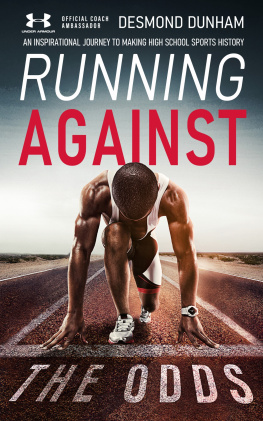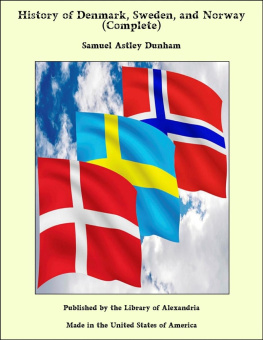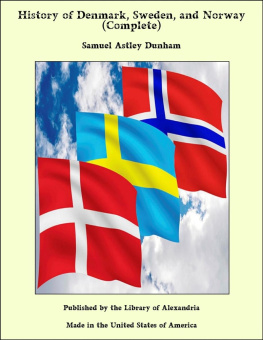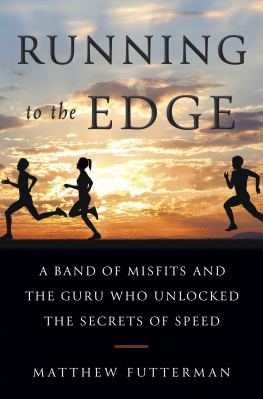Foreword
I met Desmond Dunham for the first time some twenty years ago when he arrived mid-August to RunningWorks, a camp for high school cross country runners. At the time, I remember thinking his team was composed mostly of sprinters, and it struck me as odd that he would subject them to the gruels of cross country running. I came to realize during that week at camp that the young runners from Eleanor Roosevelt High School in Greenbelt, Maryland, had the deepest respect for their coach and were simply happy to be there with him.
Over the years, Desmond attended many of my coaching clinics. A distance runner since high school, Desmond was always committed to cross country himself and went on to lead Eleanor Roosevelt to national acclaim both in cross country and track. Unorthodox as it may have been, he was committed to learning as much about the aerobic system as he could, and he believed in its importance in the development of his short and long sprinters.
If you ever have the opportunity to meet Desmond, he will immediately engage you. Disarmingly soft-spoken, you quickly realize his intensity and genuine passion for coaching. His devotion to his athletes is centered around the whole person, providing them with structure, emphasizing dedication, and above all else, leading with much needed care and kindness. He is an enthusiastic man full of curiosity in his search to become a better coach and has an insatiable appetite for knowledge. His work ethic is second to none and, therefore, the foundation of what makes him a great, tenacious coach.
What I saw twenty years ago was just a sliver of who Desmond really is. His journey is revealed in this book. It is a coming-of-age story about growing up in Gary, Indiana, the once vibrant city of the early 1960s. With the failing steel industry, the city began to quickly decompose, and by the late 80s, it had fully transformed from being the Magic City to the Murder Capital of America, infested with drugs and gangs. Devoid of a consistent and positive father figure in his home, Desmond learned to navigate life and came to the realization that he could be a better version of himself, despite the numerous challenges brought on by his circumstances. Predominately Black, Gary was a segregated city, a classic example of Americas systemic racism conveniently overlooked. Desmonds journey was more doomed for failure than success from the start. Fortunately, he found the sport of cross country, and it forever changed his life. He encountered two very important coaches along the way who continued to help shape him to become the person he is today. You do become your influences, both the good and the bad. However, you have a choice. This is the story of Desmonds choice. His positive attitude was tested often, with setbacks and disappointments, yet he overcame all odds, ultimately recognizing that he lives in an imperfect and unjust world but that it simply cannot be his reason for failure.
Each chapter is layered on the last with valuable and insightful lessons. Desmond innately gravitates toward helping others and through education and coaching creates a positive environment for Americas often marginalized youth to survive, grow, and prosper. His meaningful life can be an inspiration to everyone. Yes, Desmonds book includes wonderfully depicted races culminating with the Penn Relays. But, most importantly, you will witness how one individual, through his own personal journey, can make such a profound difference in the lives of others.
Marcus OSullivan
Villanova University Mens Track and Field & Cross Country Head Coach, Four-Time Olympian
Authors Note
Youve probably heard the saying that nothing in life is certain except death and taxes. You could almost throw in Jamaican dominance at Penns, too!
Those words from writer and track enthusiast Tim Fulton were challenged on that momentous Friday, April 27, 2007. We had come to accomplish the unthinkable.
The scene was set. Over thirty-nine thousand fans were in attendance, with thousands more livestreaming, to witness the much-anticipated Jamaica versus USA showdown. We were at one of the most historic track meets in the worldthe Super Bowl of high school track and field meetsthe 113th Penn Relays Carnival. I was the coach of a girls track and field team from Greenbelt, Maryland, representing the USA against the dominant Jamaican runners.
After nearly a three-hour delay due to lightning and heavy rainfall, the starters gun finally fired to signal the beginning of the race. The crowd immediately began to roar, chanting: U-S-A! Ja-mai-ca! U-S-A! Ja-mai-ca! Green, black, and gold flags waved vigorously throughout the stadium. Whistles shrieked boldly and consistently. It was reminiscent of an ancient gladiator scene in which the crowd anxiously waits to see who will stand victorious after an all-out battle. It was a nail-biter from start to finish with the top two teamsmy team from Eleanor Roosevelt High School and their team from Holmwood Technical High School of Christiana, Jamaicalaboriously matching each other, stride for stride, back and forth, until the final steps across the finish line.
If we won, this feat would be more than just a victory; it would forever change these young runners lives. It would be a lesson in continuing to fight for what you believe in, despite hardship and setback. Even me standing in that very stadium was a testament to my humble beginnings.
I am from Gary, Indiana, a city that thrived economically after the Great Migration of more than six million African Americans from the rural South to the cities of the North, Midwest, and West in the 1960s and 70s. But for anyone who grew up in the city during the 1970s and 80s, the bustling industry and opportunities within the predominantly Black city had deteriorated, lagging significantly behind its neighboring cities. Many people in America believe in meritocracy, that all we need to do to succeed is work hard and pull ourselves up by our bootstraps. From my childhood, I learned some of us dont get boots in the first place.











